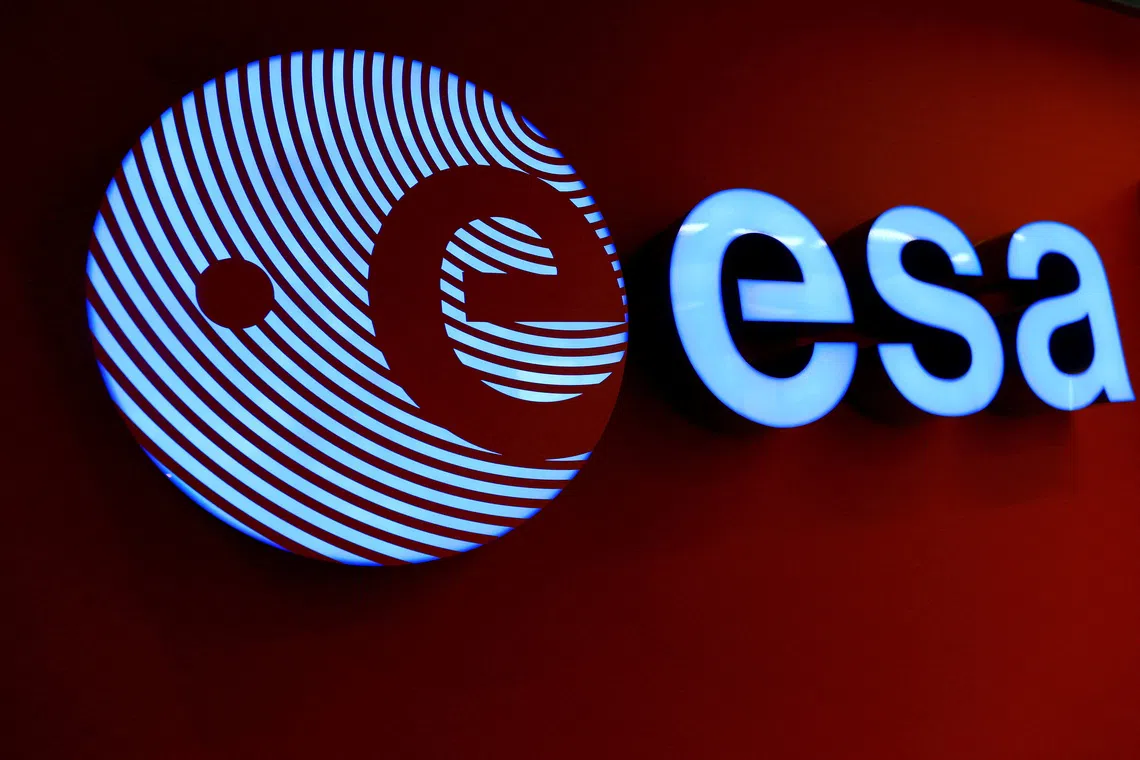European nations agree 30% boost in three-year space budget
Sign up now: Get ST's newsletters delivered to your inbox

A logo of the European Space Agency (ESA) is pictured at the European Space Operations Centre (ESOC) in Darmstadt, Germany, September 30, 2016. REUTERS/Ralph Orlowski
LONDON - European nations agreed on Thursday to increase spending on space over the next three years by about 30% to 22.1 billion euros, part of an effort to try to catch up to the U.S., China and private firms zooming ahead in the space race.
The European Space Agency had asked its 23 nations to provide some 22 billion euros to fund launches, satellites and other research programmes for the next three years, up from 16.9 billion in 2023-2025.
ESA Director General Josef Aschbacher, during a news conference after two days of ministerial talks in Bremen, said it was the first time he could recall where member states in the 50-year-old organisation had met the agency’s request.
The agreement highlights the importance of space, including as a rapidly growing economic sector and for security and defence purposes, he said.
"It is a domain where Europe has to catch up."
The European focus on space is driven in part by an urge to seek greater autonomy from the United States in security matters, sparked since the outbreak of war in Ukraine.
The triennial meeting was held against the backdrop of an ongoing budget crisis in France, home of the European space base in French Guiana.
The new space budget excludes the UK-led TRUTHS mission to provide a satellite-based climate observatory, after Britain pulled out of the project for budget reasons, officials said.
ESA is an intergovernmental body whose mandatory scientific programmes are funded by each country according to the size of its economy. It also passes the hat among its members for contributions to optional launcher and satellite programmes at ministerial negotiating sessions held every three years.
Its decisions set the tone for Europe's space industry as it also seeks to stimulate new private launch companies.
Ministers agreed to spend 4.4 billion euros on space transportation, a 20% increase over the previous period, and 3.5 billion euros on Earth observation, up 16%. REUTERS


